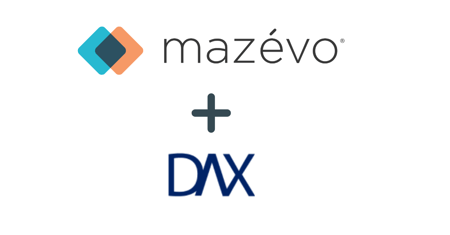I don't know about you but the number of passwords that I have is staggering. Thinking all the way back before the internet was part of our daily lives, I am not sure I even had one password. Crazy to think how times have changed. Years ago I started using a password manager when it became too much to remember and I don't think I could now function without it.
How do you remember all your passwords?
If you work for a large organization you may be using something called Single Sign-on or SSO for short.
What is SSO?
SSO allows an individual to access multiple systems in an organization using the same set of login credentials. SSO has become very common among large enterprises as the number of applications in use by these organizations has grown.
Recently we have been doing a lot of work behind the scenes on making sure that Mazévo stays safe and secure. This includes building in SSO capabilities into Mazévo.
Advantages of SSO
If your organization uses SSO there are several advantages:
- It's more convenient
- It improves security for your organization
- It makes your organization more efficient
Lets take a look at each one.
It's more convenient - Not having to remember a separate password for each application you use is very helpful. Especially when each system may have it's own requirements around password length, complexity or when it expires. One password to "rule them all" means less time tracking down lost passwords and more time managing your facilities schedule.
It improves security - SSO identity providers have strong security built into their systems. They can utilize multi-factor authentication, password length and complexity requirements and more. With less passwords to remember it is easier to follow proper password best practices and make passwords more complex and less likely to be hacked.
It makes your organization more efficient - Using SSO in systems like Mazévo is a huge time saver when it comes to managing user accounts. There is no longer any need to manually create and manage separate user accounts for everyone who needs access. SSO creates the user accounts and manages that for you.
How SSO Works in Mazévo.
SSO in Mazévo is configured using SAML 2.0. SAML works by passing information about users, logins, and attributes between a system termed an identity provider to Mazévo.
The identity provider actually does the authentication to make sure the end user is who they say they are and sends this information back to Mazévo which in this case is called a service provider. Examples of identity providers that use SAML 2.0 are Microsoft Azure and ADFS 2.0. You will need to check and see what system your organization uses as an identity provider and make sure it utilizes SAML 2.0 to work with Mazévo.
Mazévo, acting as the service provider, receives information back about the user which includes the users name and email address. If the user information that Mazévo receives back matches the user information Mazévo has already has then the user is granted access and is logged in. If on the other hand there is no user in Mazévo that matches what the identity provider sent then Mazévo will automatically create a new user account with a default set of permissions and log that person in.
While the details of how SSO works can be quite technical, in practice it is really quite simple once it is setup and configured. If you would like to discuss using SSO with Mazévo at your organization, click here to contact us or give us a call at 800-254-7615 and we will be happy to discuss.



